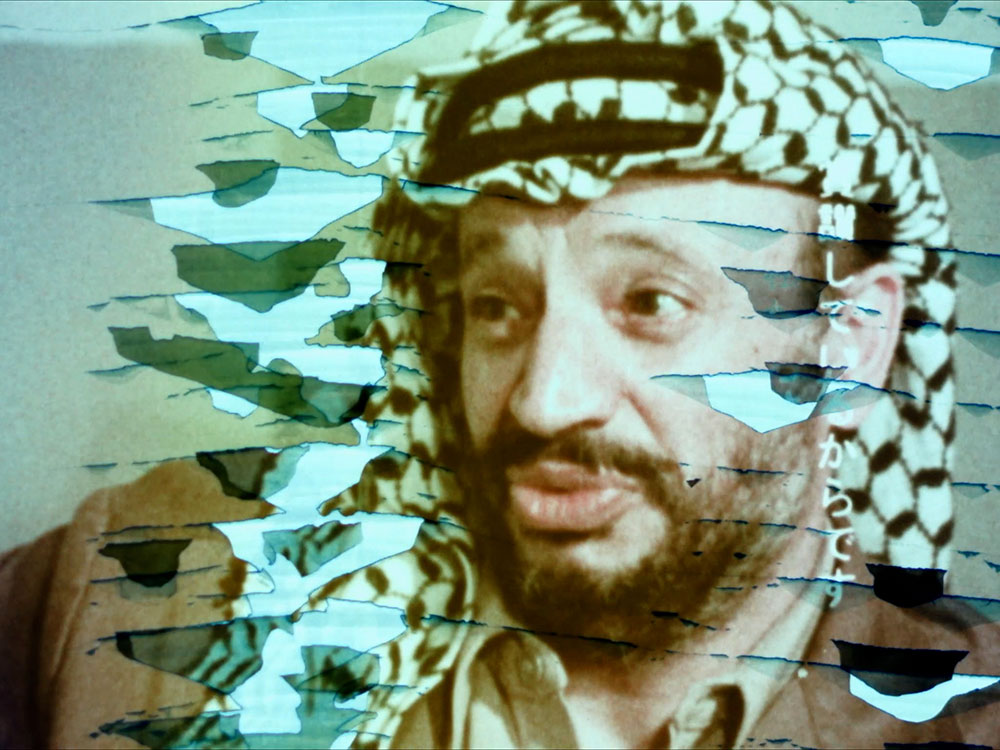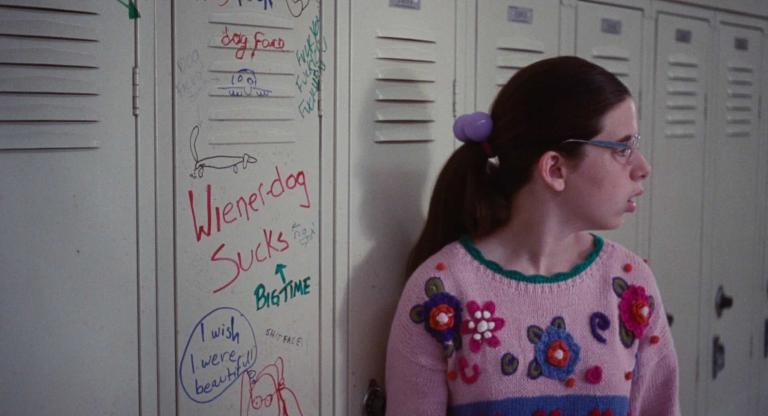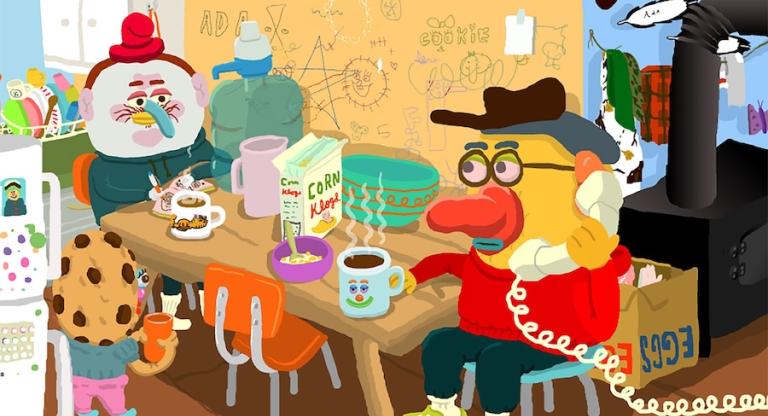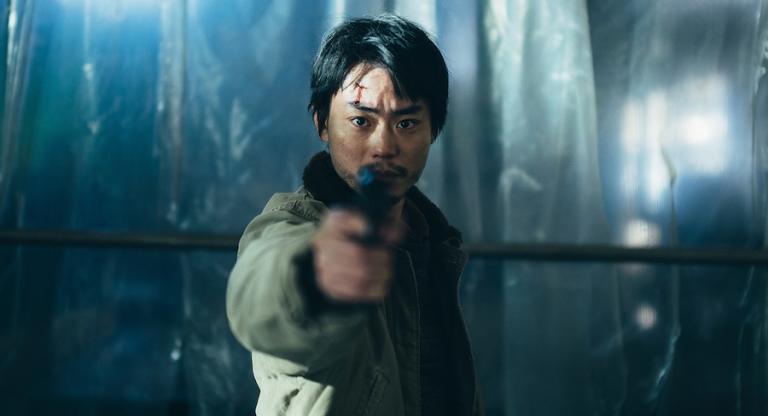Mohanad Yaqubi’s R21 aka Restoring Solidarity (2022) is a case of cinema as revolutionary practice. It is also a study of friendship and the quiet power of the archive. The twenty 16mm shorts that make up the film—newsreels and propaganda created between 1964 and 1983 in Palestine, Lebanon, Syria, Iraq, and in Japan—were given to Yaqubi by scholar Aoe Tanami when the two met after a screening of the director’s earlier Off Frame aka Revolution Until Victory (2015). The films had been stored in Aoe’s home for decades as she awaited an occasion to offer them to a Palestinian filmmaker. In R21, she and Yaqubi talk briefly about the archive before the boxed-up reels are carried on a dolly to a restoration lab to be digitized and cataloged. Yaqubi screened all twenty films in their entirety at Documenta 15 and now, working with the editor Rami El Nihawi, has woven them into a concise but moving and alarmingly contemporary feature.
Japan’s affinity with Palestine stems in part from common experiences of US militarism. The postwar Japanese left coalesced in opposition to the 1960 Treaty of Mutual Cooperation, which allowed the US army to maintain its wartime bases on the archipelago. Yaqubi’s film opens at this juncture with several photos of protests outside the national legislature in Tokyo—activists beaten and bloodied by police, a 22-year-old college student, Michiko Kanba, dead on the ground. Later the Japanese government would itself take an interest in Palestinian sovereignty, normalizing relations with the PLO amid the economic fallout of the 1973 OPEC embargo—viewed in Japan as a product of American overreach. But it was a small group of intellectuals and activists who were most ardent, traveling to Palestine, translating and dubbing Arab productions, and making critical reportage like Ryuichi Hirokawa's disturbing Beirut 82 (1982).
R21 is most remarkable for what the assembled films show. Israel is cast as a regional aggressor, leveling the village of Kuneitra at the border with Syria and committing massacres at Shatila and Sabra refugee camps in Beirut—3,000 people killed in a matter of days. “Every type of bomb was used,” a witness reports of the attacks, “including those which violated international convention: cluster bombs, phosphorus, vacuum bombs.” Later we learn the origins of modern Israel—the British seizure of Jerusalem in 1917, described by the Crown as a “liberation” from the Turkish empire, and Lord Balfour’s pledge to create a permanent Jewish state. The film also explores conflicts within the Arab nations—a bus full of refugees murdered by the Phalangists in 1976—and all manner of propaganda, from plaintive humanitarian imagery to portraits of fertile, beautiful landscapes to fables of radicalization. Yaqubi plays several minutes of Shirak’s The Game (1973), a surreal short film that shows a group of boys turn into soldiers.
Much of what the films depict is happening at this very moment in Gaza, where the IDF is bombing hospitals and schools as it did in Nabatieh camp, in southern Lebanon, in 1974; destroying mosques and churches and turning over graves as in Kuneitra; cutting off fuel, food, and medical supplies; starving children. The film’s calls for renewed solidarity are likewise resonant with protests in Tokyo, outside the US embassy and at the headquarters of military contractors. While R21 is, in other words, artifactual in the most literal sense—the filmstock burned, torn, and distorted—it is also an urgent, politically intelligent work for our time.
R21 AKA Restoring Solidarity screens Wednesday, April 3, at BAMPFA as part of the series Documentary Voices 2024.
Previously
R21 AKA Restoring Solidarity screens tonight, March 27, at BAM as part of “Triple Canopy Presents: Standard Deviations.”



